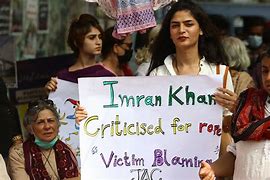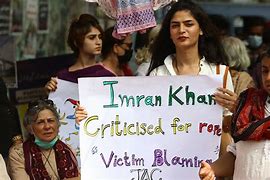
In the realm of Bollywood, where the line between fiction and reality often blurs, the emotional impact of portraying intense and sensitive scenes can be profound. Imran Khan, known for his roles in films such as Jaane Tu Ya Jaane Na and Delhi Belly, recently opened up about the harrowing experience he faced while shooting a particularly distressing scene in the 2008 film Kidnap. The scene in question involves a depiction of sexual assault, and Khan’s candid reflection on the experience provides a poignant look into the emotional toll that such roles can have on actors.
The Context of Kidnap
Kidnap, directed by Sanjay Gadhvi, is a thriller film that revolves around the abduction of a young girl and the subsequent events that unfold. Imran Khan plays the role of a troubled young man named Kabir, whose life takes a dark turn as he becomes involved in a high-stakes kidnapping plot. The film features a tense narrative and explores themes of revenge, trauma, and moral ambiguity.
The specific scene that Imran Khan has since described as particularly disturbing is one involving sexual assault. This scene was integral to the plot and aimed to convey the emotional gravity and intensity of the film’s narrative. However, the execution of such a scene, especially when it involves graphic content and sensitive themes, poses significant challenges for actors.
Table of Contents
Imran Khan’s Emotional Experience
In a recent interview, Imran Khan revealed that shooting the sexual assault scene with Minissha Lamba, his co-star in the film, left him feeling profoundly disturbed. He described the experience as emotionally taxing and admitted that it had a significant impact on him. The actor disclosed that he “threw up” after filming the scene, highlighting the intense emotional reaction it triggered.
Khan’s reaction underscores the psychological burden that can accompany the portrayal of such intense and disturbing subject matter. For actors, immersing themselves in scenes that involve traumatic or violent content can be emotionally draining and leave a lasting impact. The physical response of vomiting, as Khan described, is an extreme manifestation of the stress and discomfort experienced during and after filming.
The Impact of Portraying Sensitive Content
Portraying scenes involving sexual assault or other forms of violence poses unique challenges for actors. These scenes require a deep level of emotional engagement and sensitivity, as they often involve themes that are deeply distressing both for the actors involved and for the audience. The responsibility to handle such content with care and respect is paramount, as it can have far-reaching effects on viewers and participants alike.
For Imran Khan, the experience of filming such a scene was not just about performing a role but about confronting the harsh realities of the content. The psychological impact of engaging with disturbing material can be significant, and it highlights the emotional sacrifices that actors sometimes make for the sake of their craft.
The Role of Intimacy Coordinators and Support
In recent years, the film industry has increasingly recognized the need for support systems when dealing with sensitive scenes. The introduction of intimacy coordinators, professionals who assist in choreographing and managing intimate and distressing scenes, reflects a growing awareness of the emotional and psychological needs of actors. These coordinators ensure that scenes involving sexual content or violence are handled with care, providing a safe environment for actors to perform while also addressing their concerns and well-being.
While Kidnap was released before the widespread adoption of such practices, the experience shared by Imran Khan emphasizes the importance of these measures. The presence of intimacy coordinators and mental health professionals on set can help mitigate the emotional toll of performing intense scenes and provide actors with the support they need to process their experiences.
The Responsibility of Filmmakers
Filmmakers and directors bear a significant responsibility when crafting scenes that involve sensitive content. The way in which such scenes are approached, scripted, and executed can have a profound impact on both the actors and the audience. Ensuring that these scenes are portrayed with authenticity while respecting the gravity of the subject matter is crucial.

In the case of Kidnap, the decision to include a sexual assault scene was likely driven by the need to convey the film’s intense and dramatic narrative. However, the impact on the actors involved highlights the need for filmmakers to consider the emotional well-being of their cast and crew. Creating a supportive environment and providing adequate resources for handling distressing content can help alleviate some of the psychological strain experienced by actors.
The Aftermath and Personal Reflection
For Imran Khan, the experience of filming the sexual assault scene in Kidnap led to a period of personal reflection and emotional processing. The actor’s candid admission about the impact of the scene underscores the broader issue of mental health and emotional well-being in the film industry. It serves as a reminder of the human side of filmmaking and the often-unseen challenges faced by those who bring stories to life on screen.
Khan’s willingness to share his experience also contributes to a broader conversation about the mental health of actors and the importance of addressing their needs. By openly discussing the emotional toll of his work, Khan helps to raise awareness about the psychological challenges faced by those in the industry and the importance of providing support and resources for their well-being.
The Role of the Audience
The audience’s reaction to scenes involving sensitive content also plays a role in shaping the conversation around such topics. While films often aim to depict harsh realities and provoke thought, it is important for viewers to approach these scenes with an understanding of the impact they can have on both the performers and the broader audience. Engaging with such content responsibly and empathetically can contribute to a more nuanced and respectful dialogue about the issues depicted.
Conclusion
Imran Khan’s reflection on the disturbing experience of filming the sexual assault scene in Kidnap offers valuable insights into the emotional challenges faced by actors when portraying sensitive and intense content. His candid admission highlights the psychological impact of such scenes and underscores the importance of providing support for actors dealing with distressing material.
The discussion surrounding Khan’s experience also emphasizes the need for continued evolution in the film industry, including the implementation of support systems like intimacy coordinators and mental health resources. By acknowledging the emotional toll of their work and advocating for better support, actors and filmmakers can contribute to a more empathetic and responsible approach to storytelling.
As Kidnap continues to be discussed and analyzed, Imran Khan’s openness about his experience serves as a reminder of the human element behind the craft of filmmaking. It underscores the importance of handling sensitive content with care and respect, both on set and in the broader context of audience engagement and industry practices.









